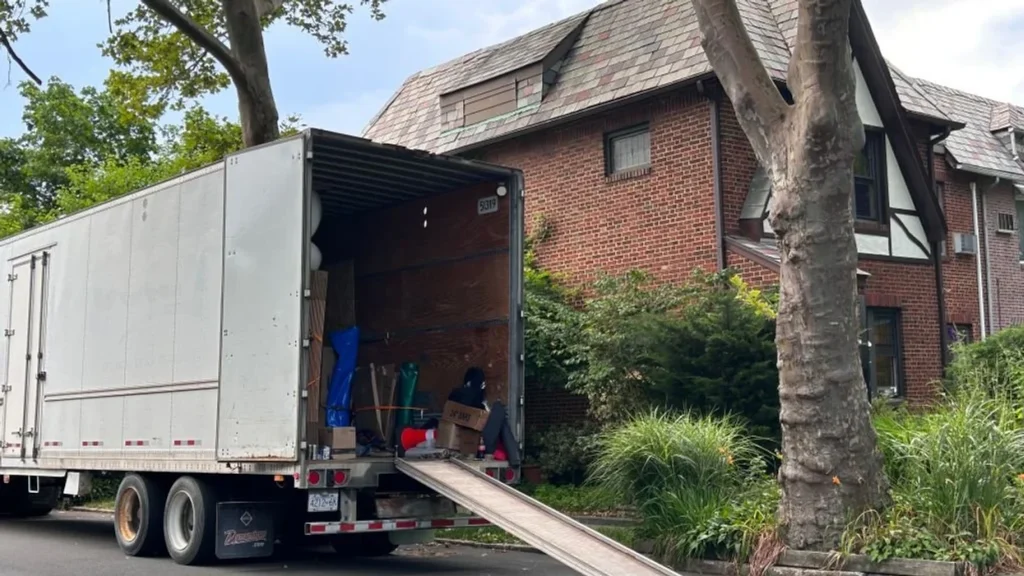I am one among millions of Americans who’ve migrated from blue states to red states. Here’s what I learned.
On June 1, 2018, my wife, daughter, and I decamped from Los Angeles for Nashville, Tennessee.
We had had enough.
Our semi-glamorous Hollywood Hills home wasn’t seeming so semi-glamorous anymore with homeless trudging down from Mulholland Drive every morning, making it a treacherous experience to walk the dog.
Nor was it a particularly enlightening experience to drive through the city for work, play, or shopping, to see, with your children next to you, the drug-addled crouched in doorways, defecating.
This wasn’t exactly “California Dreamin’” anymore.
Moreover, having been involved in betraying the cause of knee-jerk movie business liberalism by founding and becoming CEO of the conservative website Pajamas Media (now PJ Media) I had already discovered in my mailbox the scrawled warning, “We know where you live!”
Many people I met were strong constitutionalists searching for a lost America they loved and hoping they would find it in red states.
It was time to go, but the question was: where?
I was partial to Charleston, South Carolina. My wife and daughter, both country music fans, preferred Nashville. So I was outvoted.
We also chose it because my wife and I had spent our lives as novelists and screenwriters and wanted a creative city.
But the truth is, though we had visited, we didn’t know much about the place. We were blindly and optimistically fleeing the bluest of blue states for a red state.
To say there were surprises is an understatement.
And that is why it took me over five years to write “American Refugees: The Untold Story of the Mass Migration from Blue States to Red States.”
This is an experiential book, not data-driven, so I had to live it first. I am a “write what you know” guy, even for my series of detective novels.
After living most of my life in L.A. and New York, the first surprise was that everybody was so nice. Initially, I almost thought it was a trick.
The bigger shock was just how blue the city of Nashville itself was. Nashville, Memphis, Knoxville, and Chattanooga are blue islands in red Tennessee.
Naïve me, I had thought Music City to have been more or less purple. It turned out that meetings of its Metro Council were more like gatherings of a “woke” politburo on steroids.
But it wasn’t all that. A few miles out of Nashville, it was becoming increasingly more red. Or was it? The demography was complicated.
Even places like neighboring Franklin, Tennessee — something of a Republican dreamland; Norman Rockwell meets sushi bars — were at play.
Our friends on the left were hell-bent on turning the red states blue.
(My book deals primarily with Tennessee but also has chapters on Texas, Georgia, and Florida.)
Which brings me to the story of the “refugees” and what their role was and is.
It was originally assumed that those of us arriving from blue America were motivated by cheaper living (tax savings) and were to be viewed suspiciously because we would pollute red state nirvana with our innate “California views.”
While true of a few, this preconception was, in my observation, wildly off base.
Who doesn’t want to save on taxes? But moving across America is a huge undertaking that usually takes more motivation than saving a few bucks that may disappear in the cost of the move anyway.
Many people I met were strong constitutionalists searching for a lost America they loved and hoping they would find it in red states.
They were often, as I learned, more constitutionalist, often more MAGA too, than the denizens of the red states themselves.
Is this really surprising? It’s worth noting that California, due to its size, had more Trump voters in 2020 than any other state.
Who then would be the people who bothered to make the cross-country trek to become those new American refugees, recapitulating the refugees of old (legal only) who built our country?
In my book, I call them a cavalry — in SUVs, not on horseback — come to save the red states from themselves.
Now, this isn’t always true. As the cliché goes, “It’s complicated.”
Whatever the case, they are confronted by entrenched politicians, a fair number of whom are titularly Southern Republicans but often resemble the old Southern Democrats in new clothes.
This has created a conflict, a kulturkampf in which both sides of necessity are changing.
One thing the old guard insists, with justification, is they were the ones who turned Tennessee, and other red states, red in the first place.
Aren’t you renegade blue staters just a bunch of buttinskies?
I try to puzzle this all out in “American Refugees.”
Overall, I deem moving in my book a positive experience, perhaps most importantly because so many in red America are devoted to God, as opposed to blue America, where he is largely ignored.
That part, above all, changed me.
Article @ Blaze Media
